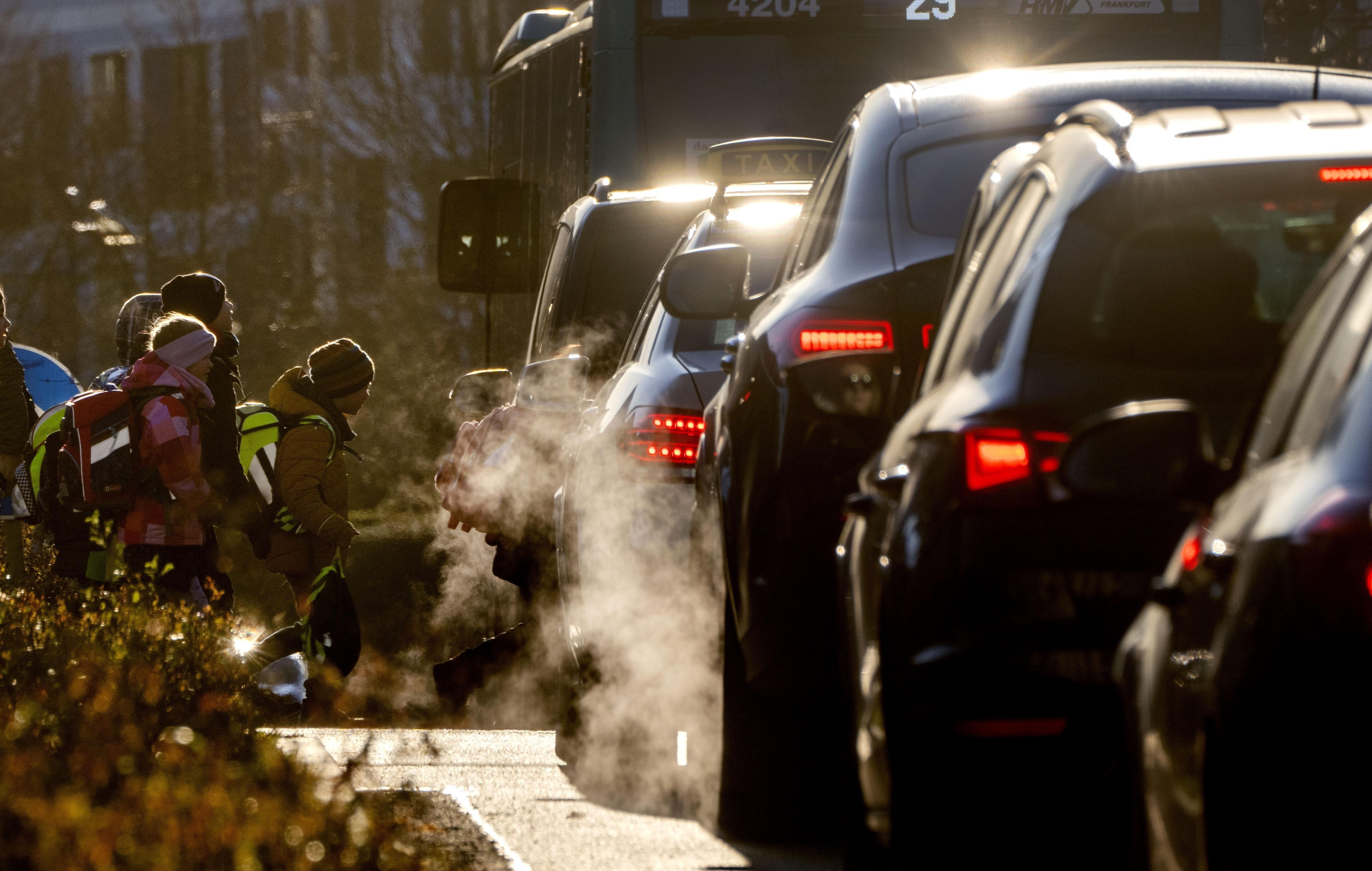 Cars give off exhaust fumes as children head to school in Frankfurt, Germany, Feb 27, 2023. (PHOTO / AP)
Cars give off exhaust fumes as children head to school in Frankfurt, Germany, Feb 27, 2023. (PHOTO / AP)
BRUSSELS - European Union countries are falling behind on their core climate change target and without stronger emissions-cutting policies risk missing the goal, the European Commission said on Monday.
In an assessment of EU countries' national climate plans, the Commission said these measures would together cut net EU greenhouse gas emissions 51 percent by 2030 - falling short of the bloc's legally-binding target of a 55 percent emissions reduction.
EU countries and nearly 100 other nations had wanted a global deal to "phase out" fossil fuels at the UN's COP28 climate summit this month - which ended in a weaker compromise to transition away from them
Overall, countries are moving in the right direction. EU emissions have been falling since 1990, and installations of renewable energy have soared. But neither are happening fast enough to meet Europe's climate ambitions.
Burning fossil fuels is the main source of greenhouse gas emissions in Europe - as well as globally.
EU countries and nearly 100 other nations had wanted a global deal to "phase out" fossil fuels at the UN's COP28 climate summit this month - which ended in a weaker compromise to transition away from them.
ALSO READ: COP28 seals historic deal on fossil fuels
The Commission said all EU countries have begun to reduce their use of fossil fuels, but some are moving too slowly, and many are undermining this shift by continuing to subsidise fossil fuels.
"Fossil fuel subsidies remain a major obstacle to the clean energy transition and a drag on the EU's climate objectives," the Commission said.
Countries including Germany and Romania plan to keep burning coal beyond 2030, weighing on their CO2-cutting abilities - although Berlin is considering bringing forward its phase-out from 2038 to 2030. The Commission said countries also need stronger plans to help workers affected by the green transition.
Countries' current plans could see the EU get 39.3 percent of its energy from renewable sources by 2030 - a big jump from the EU's 22.5 percent share last year.
ALSO READ: China climate envoy lauds joint efforts with US
However, that would still fall short of the bloc's target for 42.5 percent by 2030 - a goal designed to help wean Europe off Russian fossil fuels.
The assessment covered national plans from 21 countries. Austria, Bulgaria and Poland have not submitted one, while Belgium, Ireland and Latvia submitted theirs late. Final plans are due by June 2024.
Other sectors where CO2-cutting efforts are falling behind include transport, farming, and protecting forests so they store more CO2, the Commission said.


